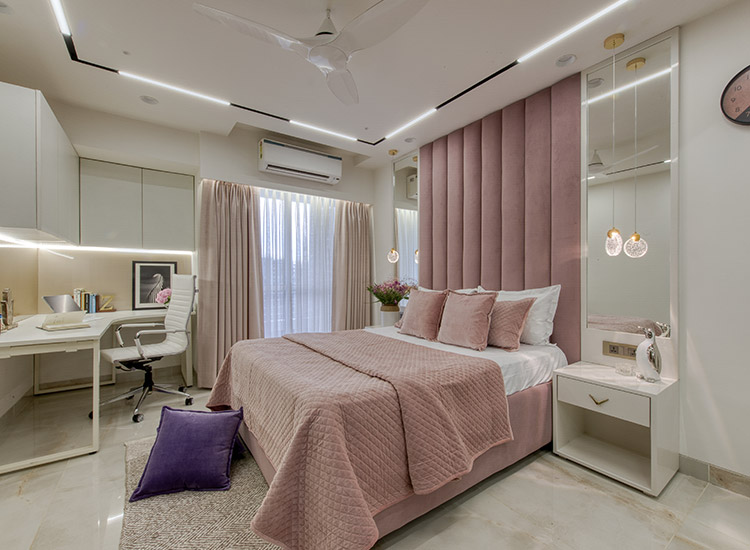How color affect health of a person
Have you ever wondered how colors in and around your beautiful home affect your health and well being? Your bedroom, your living room, your study, everywhere you spend time, colors play a very important role. Colors can alter a person’s mood by provoking anger, evoking happiness, generating feeling of sadness and many such emotions but a lot of us don’t understand the psychology behind these colors while designing our abode.

It’s strange how our body synchronizes its waves with the outside world. Isn’t it? That’s why it’s important to closely observe things that we include in our life. As interior designers, we believe home is a place where you relax and leave your worries outside the door. The positivity that flows within is what makes a house ‘Home.’
Have you ever wondered how colors in and around your beautiful home affect your health and wellbeing? Your bedroom, your living room, your study, everywhere you spend time, colors play a very important role. Colors can alter a person’s mood by provoking anger, evoking happiness, generating feeling of sadness and many such emotions but a lot of us don’t understand the psychology behind these colors while designing our abode.
From the color on your walls to the hues of your drapes, everything around you is affecting you and your lifestyle. Read on, we are spilling the beans on health and color connection:
1. White – It helps to stimulate the energy/functioning of the lungs which in turn improves breathing, nurtures skin, and reduces the feeling of sadness and grief.
2. Black – This color stimulates the energy/functioning of the kidney; it helps in improving our memory and concentration. It also enhances sexual functions, reproductivity, hair growth and other psychological functions like fear, will-power, and memory.
3. Red – It stimulates and warms the body. Affects heart rate, brain activity, and respiration. It helps in increasing the enthusiasm and energy level in the room. But if you have high blood pressure and hypertension problems, you should avoid red color.
4. Orange – It energizes you to do physical activities, heals the lung and boosts your energy level. An orange painted room is a good place to do exercise.
5. Yellow – It’s a good memory stimulator. It also raises your blood pressure and pulse rate but not like red. It is recommended that you add yellow color in classrooms and workplaces to regain focus and alertness.
6. Blue – This color has a calming effect on the body. It helps you lower your blood pressure, heart rate, and controls respiration. It is found to have a cooling effect on the body.
7. Purple – Purple color can help restore the equilibrium of your body. If you are suffering from dysplasia, back pain, or scoliosis problems then purple color can be a great addition to your décor theme.
In the end:
Color selection for your interior décor is a very personal thing because at the end of the day you are the one who will be spending your time amidst the chosen color theme. Across the globe, there are many theories around color impact in one’s life. Like in Tokyo Japan, blue lights were installed at the streets at Yamanote railways to reduce incidents of suicide. Few similar studies showed that colors play a very important role in creativity, student’s learning in the classroom and sleep quality. So, it becomes imperative to understand color psychology as it plays a crucial role in interior designing. It can build up your mood and can circulate the flow of energy within you. There are countless color potential arrangements that can appeal to your senses and your home décor. Our advice -> Experiment with colors overtime and figure out what suits you best.





